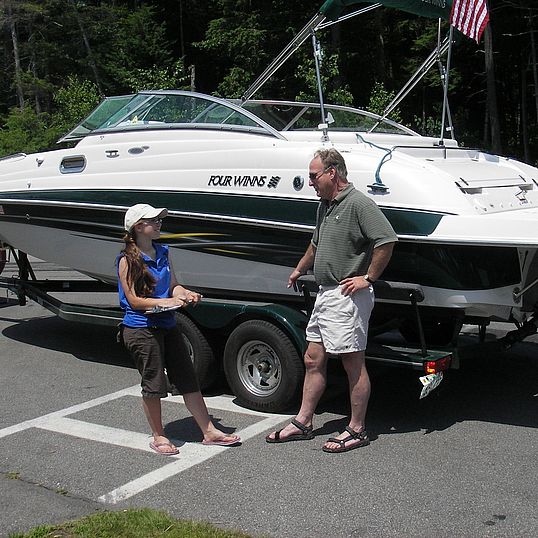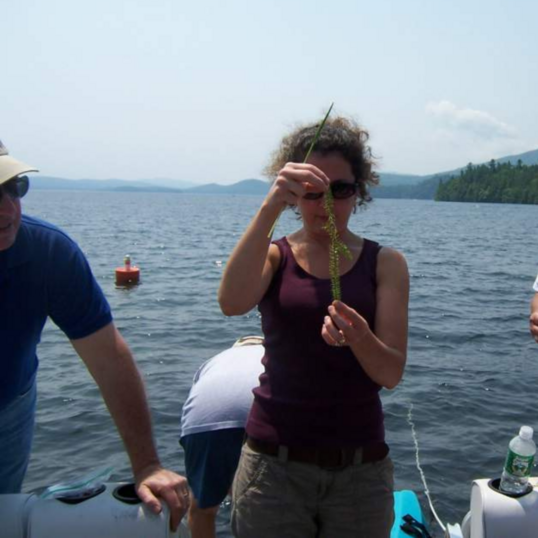
Stopping Aquatic Invasive Species
Aquatic invasive species infest new lakes across New Hampshire every year. Together, we can protect Newfound Lake from these harmful invaders.
What are Aquatic Invasive Species?
Aquatic invasive species are plants and animals found in a waterbody they don't naturally occur. Often with few natural predators, they spread rapidly and can cause serious damage:
- Crowding out native plants and wildlife
- Harming water clarity and quality
- Creating hazards for swimmers, paddlers, and boaters
- Reducing property values by roughly one-third
- Costing tens of thousands of dollars annually to control
Once established, the are nearly impossible to eradicate. Prevention and early detection are our strongest tools.
Recreators — Everyone Plays a Role
Whether you boat, fish, swim, or paddle, you can help protect Newfound. New Hampshire law requires that all boats and gear be cleaned and drained between launches.
Follow this Clean, Drain, Dry Checklist:
- Clean all plants, animals, mud, and debris from your boat, trailer, and equipment.
- Drain all compartments, live wells, ballast tanks, and gear.
- Dry your gear completely for five days before launching in a new waterbody. If relaunching sooner, visit a boat-friendly car wash or rinse and dry at home.
A Special Note for Anglers:
In fall of 2025 the invasive spiny water flea was identified in Newfound Lake. Dry your fishing line with a sturdy cloth to stop the spread! Learn more.
How We Stop Invasives: A Two-Part Defense

Lake Hosts
Boats are the most common way aquatic invasives spread. Invasive plants and animals “hitchhike” from waterbody to waterbody on boats, trailers, or other recreational gear. A tiny plant fragment can be all it takes to start a new infestation.
In partnership with NH LAKES, our trained Lake Hosts provide free courtesy inspections at Newfound's two public launches. They:
- Inspect boats, trailers, and gear for invasive plants and animals
- Educate boaters about aquatic invasive species
- Promote Clean, Drain, and Dry practices

Weed Watchers
Early detection is critical to stopping invasive aquatic plants from causing serious damage. Weed Watchers are volunteers who paddle the shoreline to spot invasive plants before they spread. Weed watching usually takes place once a month from late May through August, culminating in our annual lake-wide survey, the Weed Stampede. To date, Newfound Lake remains free of invasive aquatic plants.
